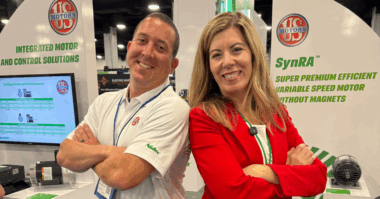Over the past couple of weeks, I have learned a lot about “Reliability”. I have seen the word “reliability” and participated in lots of discussions about reliability, but I had no idea what it really meant until recently. I honestly missed the connection between pump system maintenance and plant reliability programs. It wasn’t until meeting Mr. and Mrs. Terry O’Hanlon that I really understood… It’s about culture change. I met the O’Hanlon’s during a lovely visit to the Uptime and Reliabilityweb.com facility in Fort Myers, FL earlier this summer. I was given an audio book CD for my drive back to Orlando. The CD was titled “Don’t Just Fix It, Improve It!” By Wiston P. Ledet, Winston J. Ledet & Sherri M. Abshire. Because I was just fascinated with Mrs. O’Hanlon, I decided if she liked it, I am sure I would too. So, I began to listen on my drive… The book is a fictional story about a man struggling to balance his various roles of husband, father, and plant manager. (Many of us can relate to that!) When an accident happens at his plant, he takes personal responsibility and makes it a life goal to improve his plant operations so this type of accident wouldn’t happen again on his watch.
The character faced many challenges trying to change the culture. As I listened to the opposition from his team as he tried to implement a reliability program, I realized shutting down part of a plant to fix an equipment failure was a lot bigger than the YouTube installation videos make it seem. I was deep in thought about how brave he must have been. That is why I titled my last post about the father of reliability, Courage for Reliability.
After my best friend’s wedding in Orlando, a day trip home for my daughter’s third birthday (A PINK Princess party which I had planned before I left for Ft Myers), I was off to visit my Industry Pro, Frank Taaning-Grundholm of Denmark, at the Danfoss facility in Loves Park, IL.
I continued to wrestle with “reliability.” I had a wonderful tour of their state-of-the-art facility by the plant manager, Phil McIlheran. As I walked through the plant listening to him explain the process, I started to realize how important the employees were to the plant manager. People had an important role and he wanted their perspective on improving the process. I also noticed there were several key machines that had been given prominently displayed names. These names had significant meaning to the employees and represented past employees who were responsible for plant improvements. I tell you this because it is clear to me… Phil valued his people and therefore had a sense of pride in his facilities and the products being made!
Reliability starts with people! Plant improvements can only be made if you look beyond the easy fix and establish the root cause of the failure. For your plant to have a sustainable reliability program, everyone needs to buy into the culture. This is no easy task. It takes bravery, strength, and endurance through unforeseen circumstances.
I hope these references have inspired you to continue on the road to reliability!



